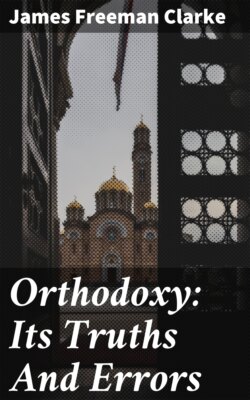Читать книгу Orthodoxy: Its Truths And Errors - James Freeman Clarke - Страница 25
На сайте Литреса книга снята с продажи.
§ 8. The Error of Orthodox Supernaturalism.
ОглавлениеTable of Contents
Supernaturalism has generally disregarded God in nature, and only sees him in revelation. It has allowed a sort of natural religion, but only in the way of an argument to prove the existence of God by what he did a long time ago. But it has not gone habitually to nature to see God there, incarnate in sun, moon, and stars; incorporate in spring, [pg 051] summer, autumn, and winter; in day and night; in the human soul, reason, love, will. God has been all around us, never far from us; but theology has only been willing to see him in Jewish history, in sacred books, or on Sundays in church. Let us see him there all we can, but see him also in every rippling brook, in every tender flower, in all beauty, all sublimity, all arrangement and adaptation of this world. No wonder that naturalism should come to do what the Church has left undone—to find its God and Father in this great and wonderful world which he has made for us. The creed says, “God the Father, God the Son, and God the Holy Ghost;” that is, God the Creator, seen in Nature and Providence; God the Redeemer, seen in Christianity; and God the Sanctifier, seen in every righteous and holy soul. But the Church has neglected its own creed, and omitted God the Creator, often also God the Sanctifier, and has only seen God in Christianity, in its history, its Church, its doctrines, its ceremonies.8 Against this, naturalism comes as a great and needed protest, and calls us to see God also in nature and life.
Then the Church has been too apt to teach a miraculous revelation, in which the miracles are violations of law. But as God is confessedly the author of law, it has made the Deity violate his own laws; that is, has made him inconsistent, arbitrary, irregular, and wilful. Deep in the human mind God has himself rooted a firm faith in the immutability of law; so that when miracles are thus defined, naturalism justly objects to them.
